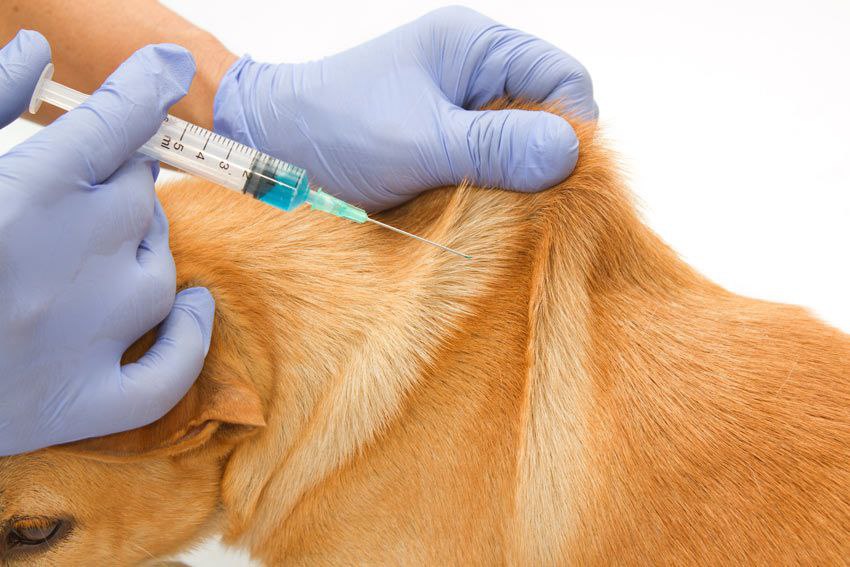Addison’s disease, or hypoadrenocorticism, is a serious condition in dogs that occurs when the adrenal glands do not produce enough hormones. This can lead to a variety of symptoms, including lethargy, vomiting, diarrhea, and even life-threatening adrenal crises. If your dog has been diagnosed with Addison’s disease or is showing signs of adrenal insufficiency, Fludrocortisone Acetate could be a critical part of their treatment plan. This medication is designed to help manage the condition and improve your dog’s quality of life. Here’s what you need to know about Fludrocortisone and how it can be a solution for Addison’s disease in dogs.
Understanding Addison’s Disease in Dogs
Addison’s disease is a condition where the adrenal glands, which are located just above the kidneys, fail to produce sufficient amounts of essential hormones such as cortisol and aldosterone. These hormones are crucial for maintaining normal bodily functions, including regulating metabolism, immune response, and electrolyte balance. Without adequate hormone production, dogs with Addison’s disease can experience severe imbalances in sodium and potassium levels, leading to a range of health problems.

Symptoms of Addison’s disease can be quite vague and may include:
- Lethargy or weakness
- Vomiting and diarrhea
- Loss of appetite and weight loss
- Increased thirst and urination
- Shaking or muscle tremors
- Low heart rate and dehydration
Because these symptoms can overlap with other conditions, diagnosing Addison’s disease often involves blood tests and other diagnostic procedures to confirm the adrenal insufficiency and rule out other potential causes.
The Role of Fludrocortisone Acetate
Fludrocortisone Acetate is a synthetic corticosteroid that mimics the action of aldosterone, a hormone that helps regulate sodium and potassium levels in the body. It is commonly prescribed for managing Addison’s disease in dogs because it can effectively help restore the hormonal balance disrupted by adrenal insufficiency.
Here’s how Fludrocortisone Acetate can be a solution for dogs with Addison’s disease:
- Sodium Retention: One of the primary functions of aldosterone is to promote sodium retention by the kidneys. Fludrocortisone Acetate helps the kidneys retain sodium, which in turn helps the body maintain fluid balance and prevent dehydration. This is crucial for dogs with Addison’s disease, as they often suffer from low blood pressure and dehydration due to sodium loss.
- Potassium Excretion: Fludrocortisone Acetate also enhances the excretion of potassium by the kidneys. High levels of potassium can lead to serious health issues, including heart arrhythmias and muscle weakness. By helping to lower potassium levels, Fludrocortisone Acetate helps to prevent these complications.
- Cortisol Support: Although Fludrocortisone primarily acts as a mineralocorticoid, it also has some glucocorticoid effects. This means it can provide a small amount of cortisol support, which is another hormone that is often deficient in dogs with Addison’s disease. In severe cases, dogs may need additional glucocorticoid treatment, such as prednisone, to fully address their cortisol needs.
Administration and Dosage
The dosage of Fludrocortisone Acetate for dogs depends on factors such as their weight, the severity of their condition, and their individual response to the medication. Typically, the dosage ranges from 0.01 to 0.1 milligrams per pound of body weight, administered once daily. Your veterinarian will determine the appropriate dosage for your dog and will adjust it as needed based on their response and ongoing monitoring.
Fludrocortisone Acetate is usually given orally in the form of tablets. To ensure the medication is effective and safe:
- Follow the prescribed dosage: Administer the medication exactly as directed by your veterinarian.
- Consistency: Give the medication at the same time each day to maintain steady levels in your dog’s system.
- Monitor your dog: Keep an eye on your dog’s symptoms and report any changes or side effects to your veterinarian.
Potential Side Effects
While Fludrocortisone Acetate is generally well-tolerated, it is important to be aware of potential side effects. Some dogs may experience:
- Increased thirst and urination: As the medication affects sodium and potassium balance, your dog may drink more water and urinate more frequently.
- Weight gain: Some dogs may experience weight gain due to fluid retention or increased appetite.
- Lethargy: Although rare, some dogs may show signs of lethargy or weakness.
If you notice any severe or unusual side effects, contact your veterinarian promptly.
Conclusion
Fludrocortisone Acetate can be a vital part of managing Addison’s disease in dogs, helping to restore hormonal balance and improve their overall health. By mimicking the effects of aldosterone, it aids in sodium retention, potassium excretion, and provides some cortisol support. Proper administration and monitoring are key to ensuring the medication’s effectiveness and minimizing potential side effects. If your dog is diagnosed with Addison’s disease, consult your veterinarian about how Fludrocortisone Acetate can be integrated into their treatment plan to help them lead a healthier and more comfortable life. Read more


